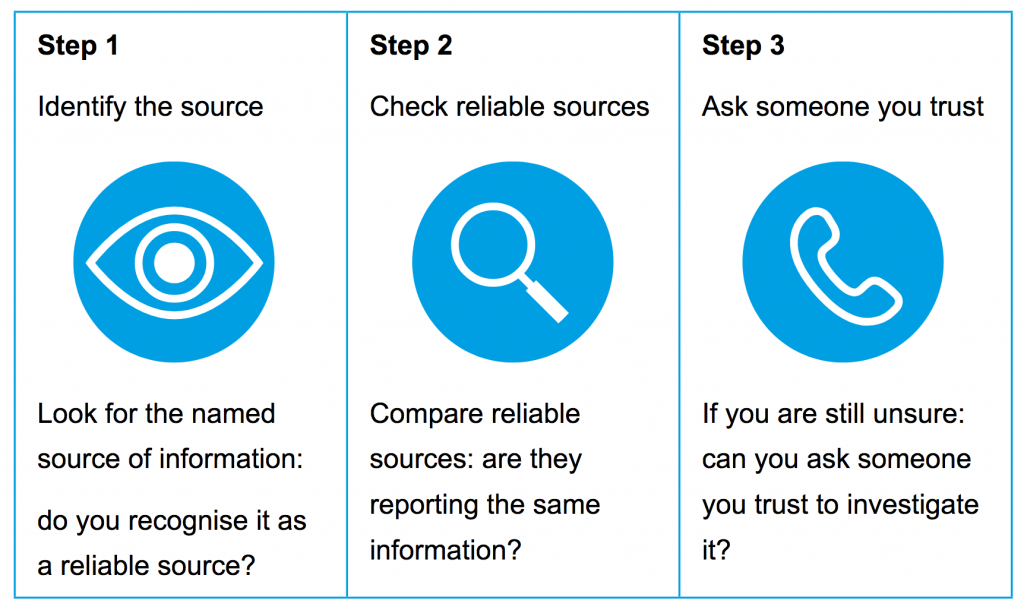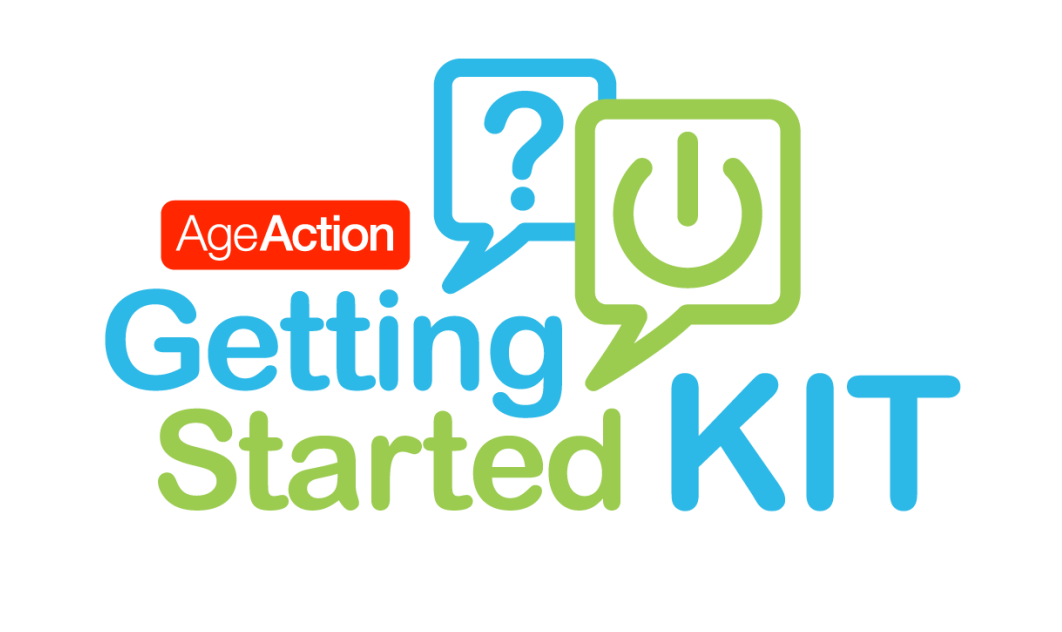By Eileen Culloty
Dr Eileen Culloty is a postdoctoral researcher at the DCU FuJo Institute where she works on countering disinformation as part of the EU Provenance project.
As older people cocoon at home, digital technology is a vital source of connection. At the end of April, Age Action launched the Getting Started Kit, a set of seven guides to help older people navigate smartphones, apps, and COVID-19 information.
Media Literacy Ireland members FuJo and NALA collaborated with Age Action to develop the ‘How to avoid false information about COVID-19’ guide
False information about COVID-19 is thriving and older people are particularly vulnerable as they tend to have lower levels of digital media literacy. To counteract this, the guide highlights reliable sources of information and provides a simple check list to assess information and identify rumours, hoaxes, scams, and conspiracy theories
Older people are advised to check the reliability of information by following three steps: identify the source, compare reliable sources, and ask for help if necessary.

The guide also provides a summary of the major types of false information surrounding COVID-19 including rumours, hoaxes, scams, and conspiracy theories. Following best-practice, the guide does not repeat any false claims. Instead, it highlights the nature of claims and provides a key question to assess reliability. For example, “am I being asked for personal details?” and “does someone claim to know who ‘creates’ the virus or why?”.
The Getting Started Kit will be distributed by Age Action and broadcast as video tutorials on RTÉ One.
